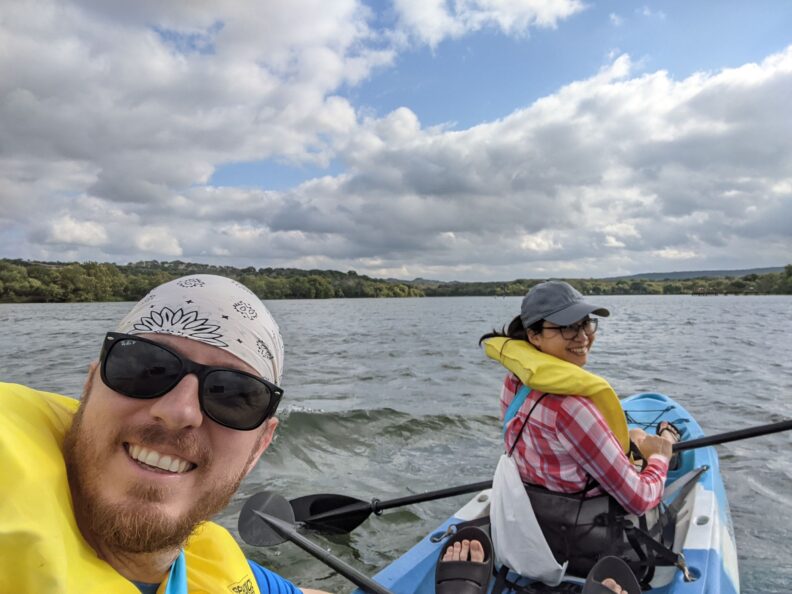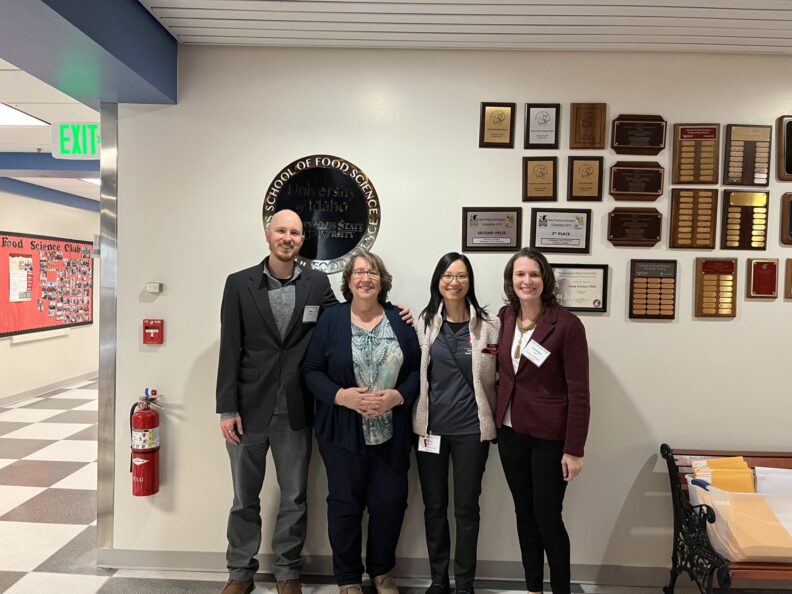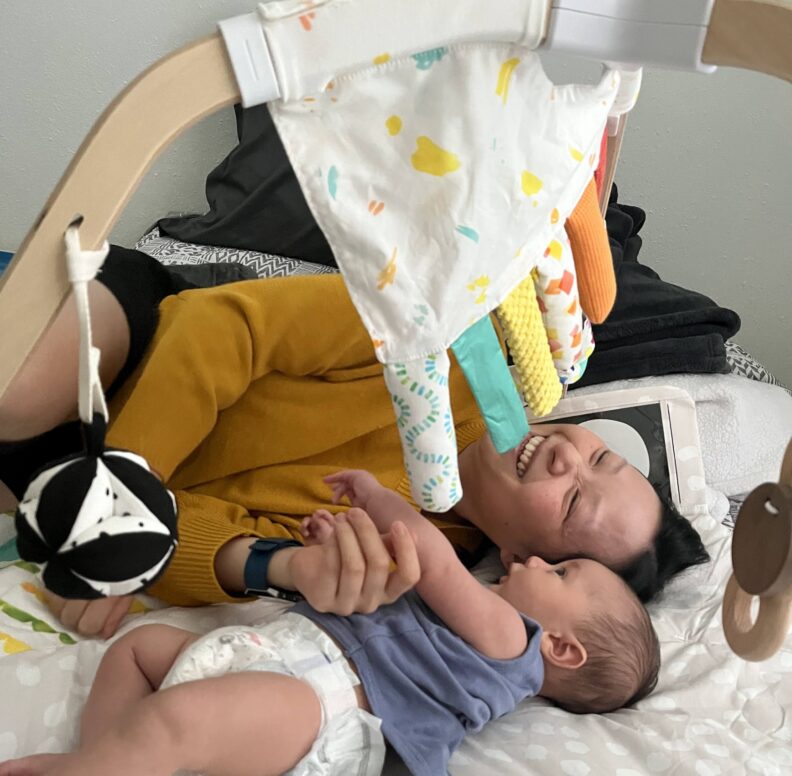PULLMAN, Wash. — Dr. Thuy Bernhard was promoted to Teaching Associate Professor earlier this year, in recognition of her dedication and expertise. Dr. Bernhard serves as the director of both the Food Science Certificate program and the M.S. in Agriculture Food Science Management option here at WSU, working remotely from Texas.

Can you tell me about your background both professionally and personally?
My path to Food Science was pretty unconventional. As a major in Neurobiology, Physiology, and Behavior at UC Davis, my plans were originally to go into medicine. During my senior year, I interned at the UC Davis medical center but quickly realized it wasn’t the right path for me.
Shifting gears, I joined a STEM program that placed pre-service educators in local classrooms, and teaching a math course felt natural. I loved mentoring others—it reminded me of my own experience as an immigrant from Vietnam. Growing up, I benefited greatly from mentors, which inspired my desire to give back through teaching.
After completing my B.S. degree, I interned at the Lawrence Berkeley National Lab in Berkeley, CA, where I researched indoor air quality and its effects on health. That experience opened the door to research and helped me seriously consider graduate school. Around that same time, I had also completed a credentialing program to teach biology at the middle and high school levels, but I wasn’t quite ready for the classroom full-time.
I went on to earn my Ph.D. at WSU, graduating in 2015. Soon after, I had the opportunity to teach and help run the Food Science Certificate Program. In 2016, I officially joined the School of Food Science faculty, teaching both in-person and online courses. It’s been immensely rewarding to work with undergrads, grad students, and industry professionals – each group brings something unique, which keeps the work meaningful and engaging.

What would you say your focus is within the realm of Food Science?
My postdoctoral work focused on functional foods and human nutrition. More recently, I’ve been concentrating on food safety. This area naturally connects various aspects of food science, including consumer education, product development, regulation, and public health.
Even though my focus has shifted over the years, at the core of everything I do is education. My role allows me to engage with many different facets of the field, which keeps it exciting and impactful.
Can you explain a little bit of what it looks like to operate the MS in Agriculture Food Science and Management Program and the online Food Science Certificate Program?
The online M.S. in Ag program has three tracks: Food Science and Management, Plant Health Management, and General Agriculture. I direct the Food Science and Management option. A big part of my role is focused on advising. I work closely with students to make sure they have access to the right courses and are on track to meet their graduation goals. I serve as the advisor for about 95% of the students admitted to the program. Many of them are working full time in the industry, so they’re looking for a streamlined, supportive path to complete their degree.
The Food Science Certificate program provides foundational knowledge to anyone interested in stepping into the field. I teach courses on the fundamentals of food science. I enjoy being able to share tips and guidance through my work in both programs – it’s rewarding to help students move forward and reach the next step in their careers.
Is there any particular moment or moments during your time here that stick out in your memory?
Some of the most memorable parts of my time here has definitely been participating in student final exams. Watching them wrap up their journey is always a powerful moment. It can be really emotional – having gone through it myself, I understand the effort it takes, but I also know many students have had to overcome even more than I did to get there.
That’s especially true in the M.S. in Ag program. Many of our students are juggling careers, raising kids, or dealing with relationships or health challenges. Seeing them push through and then finally defending their work – there’s just such a deep sense of pride and accomplishment. It warms my heart every time.

Do you have any advice for undergraduate students?
My biggest piece of advice is: don’t be overwhelmed by how broad food science is – embrace it. The field touches so many areas of the industry, and that can feel intimidating at first. But it’s also what makes it exciting!
You might start out in R&D and later discover you love quality assurance, or food safety, or sensory science. One of the strengths of our program is that we train students with a wide variety of skills, so they’re well-prepared to move into different areas and still thrive. It’s a flexible major, but it also requires students to be open-minded, adaptable, and willing to try new things.
Any advice in particular for graduate students?
For graduate students, time can fly by because you’re so immersed in research, coursework, and writing your thesis or dissertation. So, take full advantage of every opportunity that comes your way – use the resources available, attend workshops, network, and don’t hesitate to ask for help. You’ll get out of it what you put in.